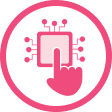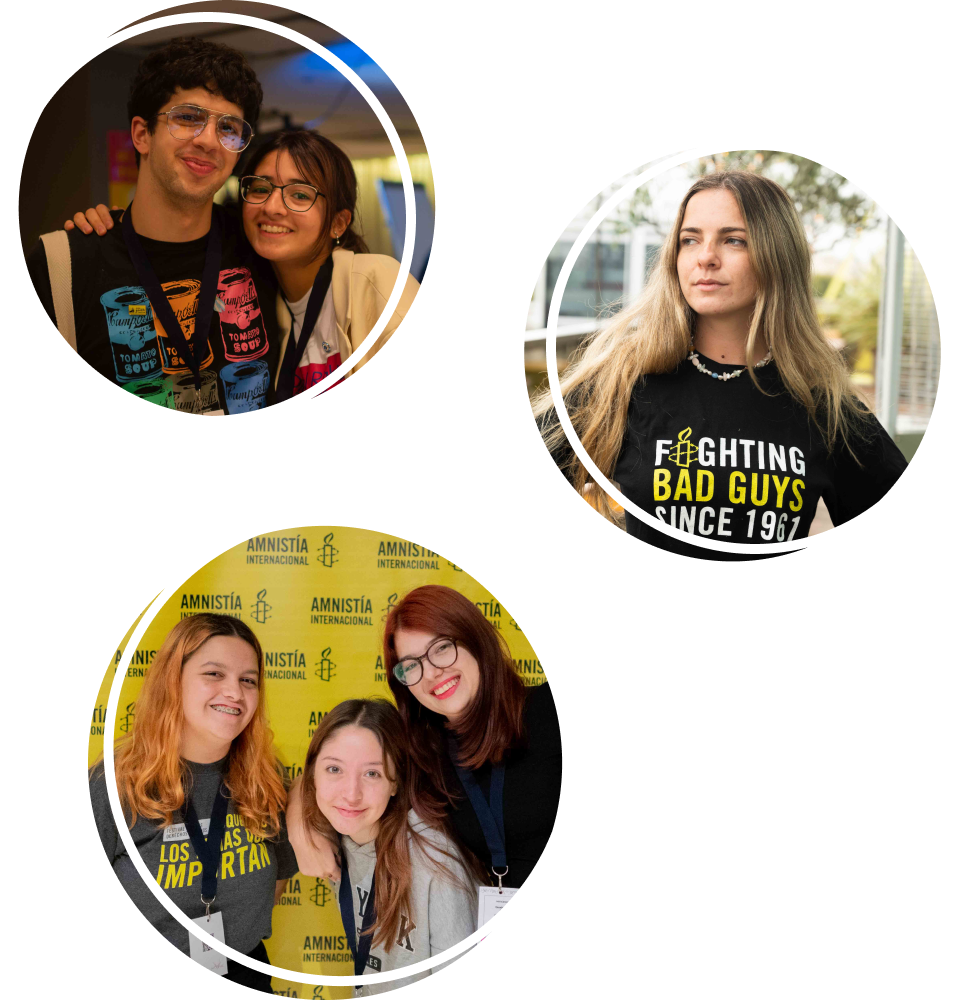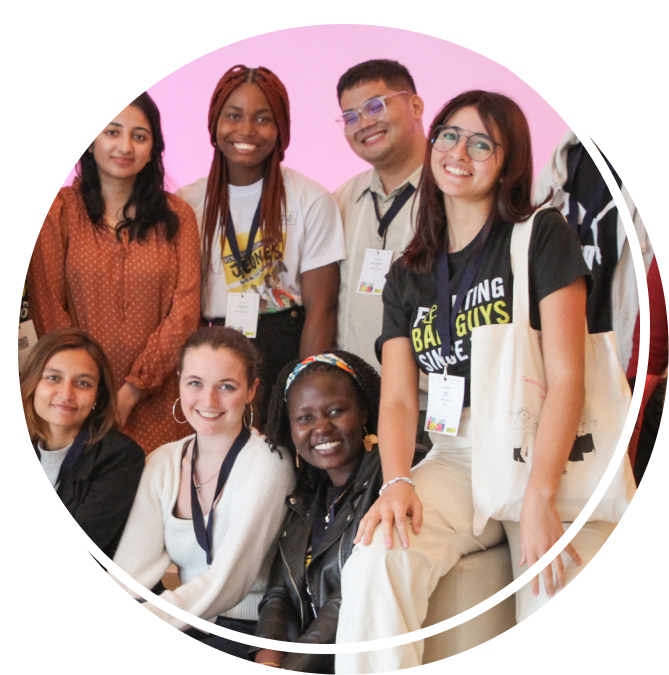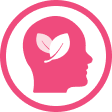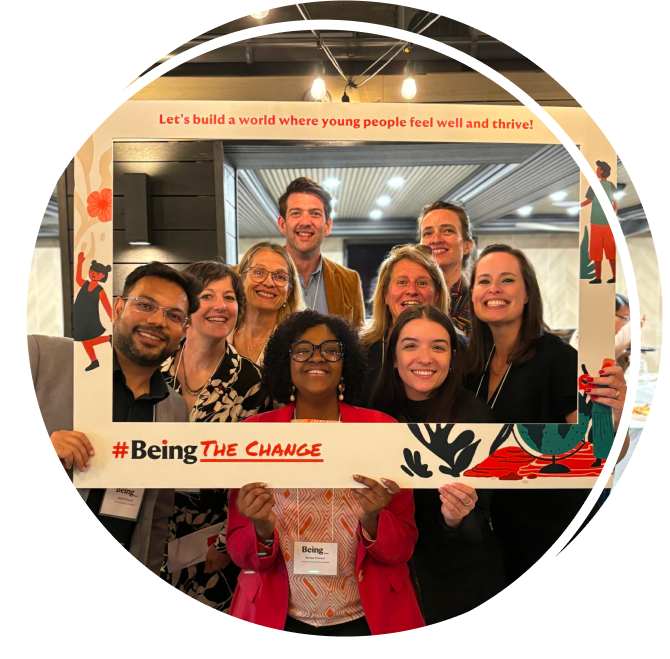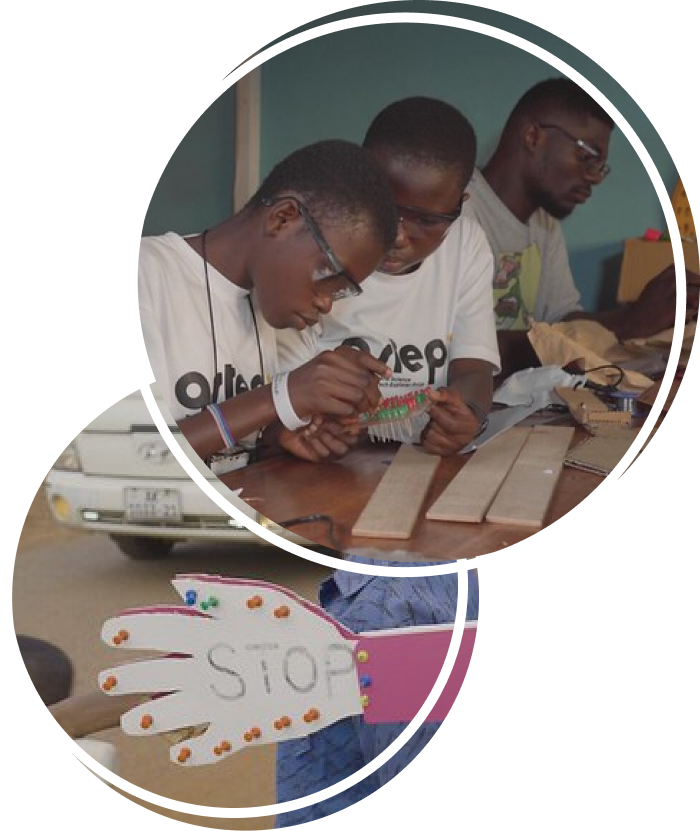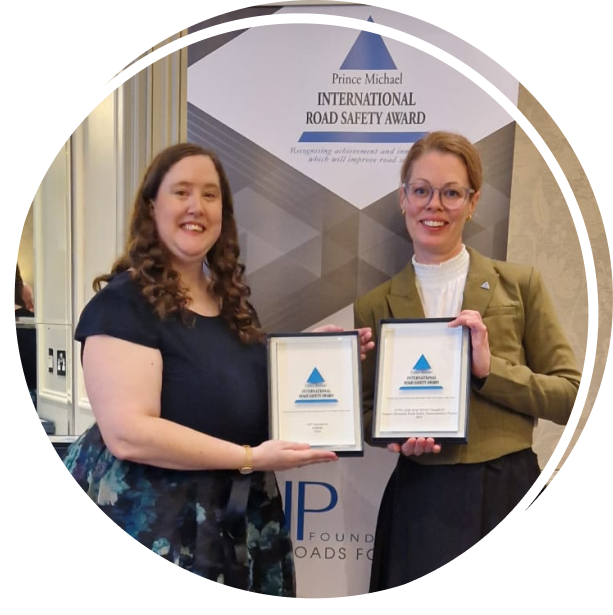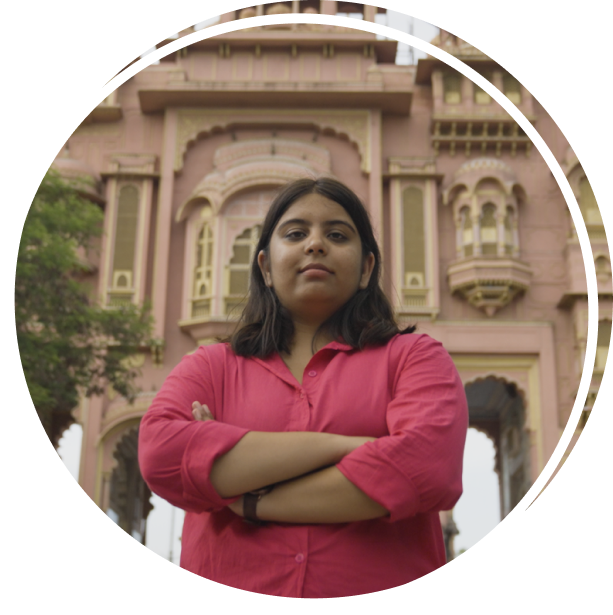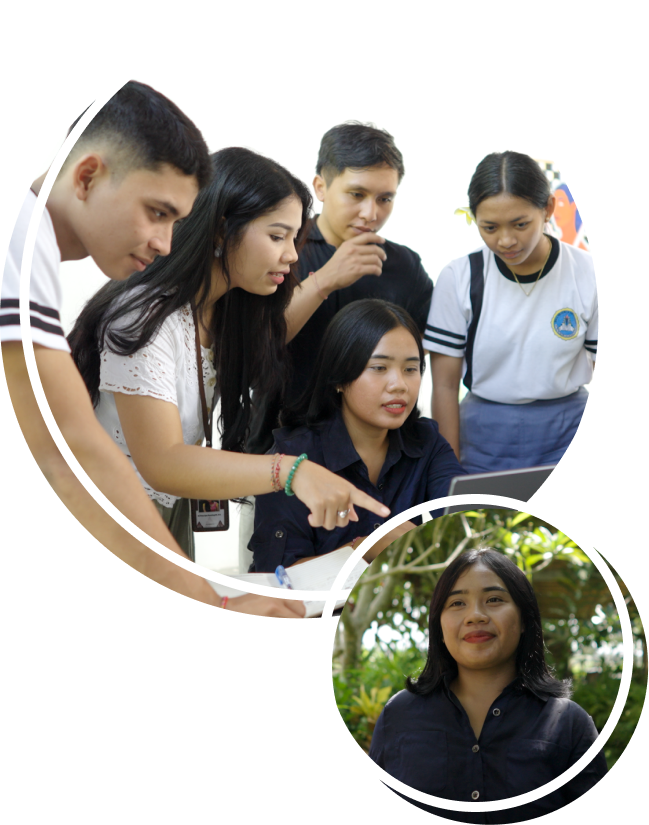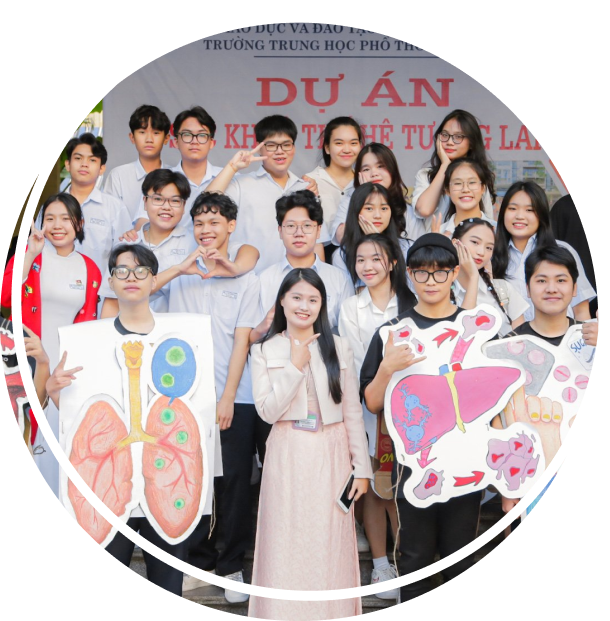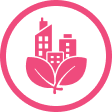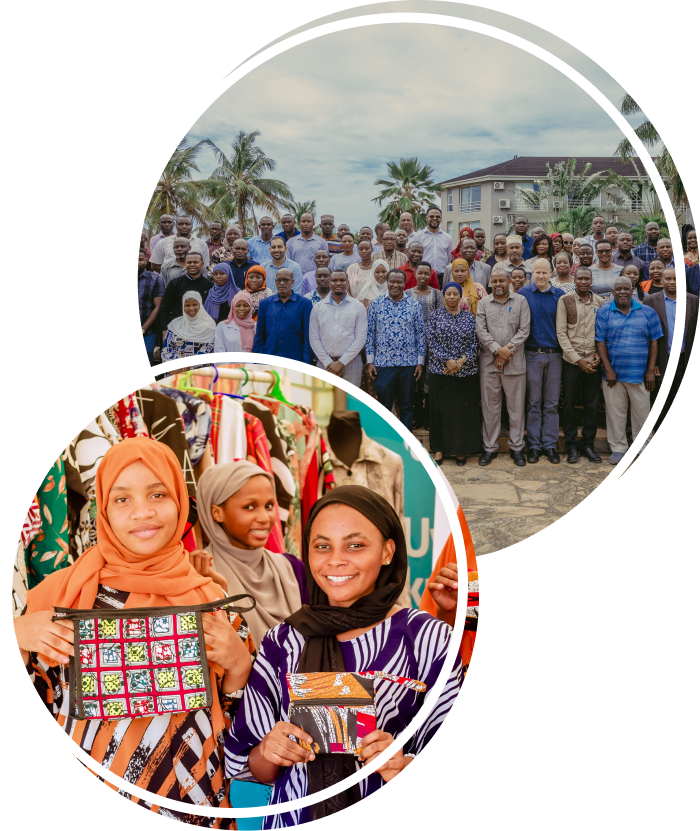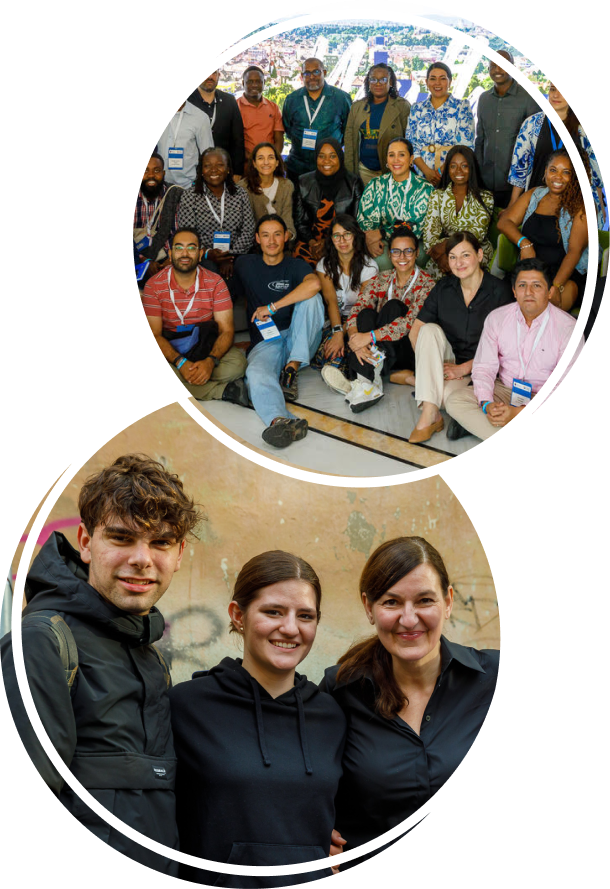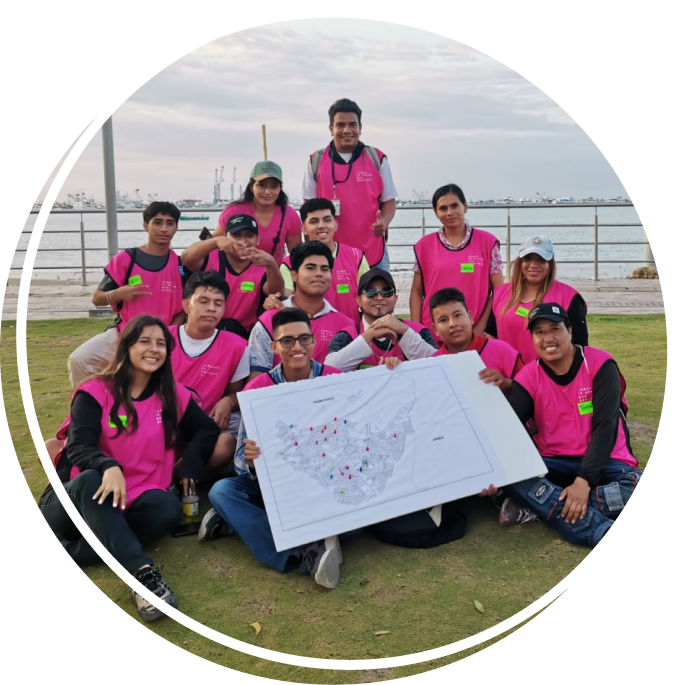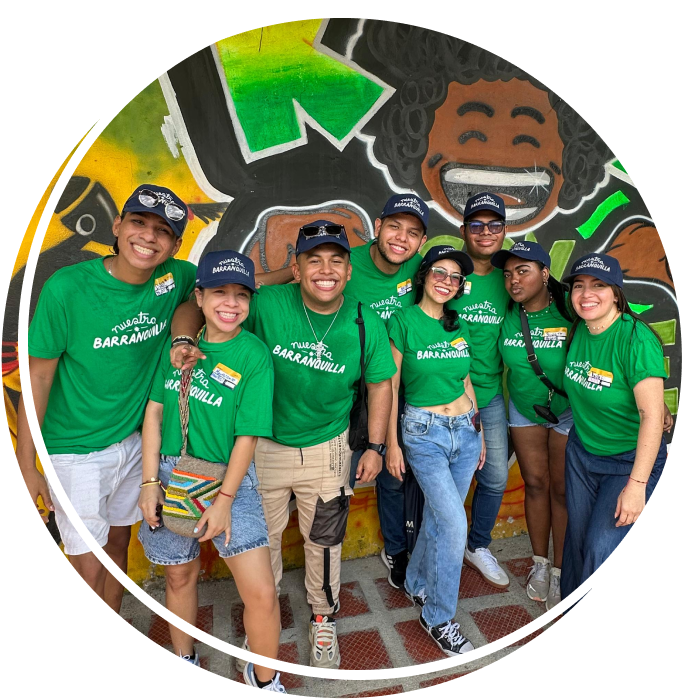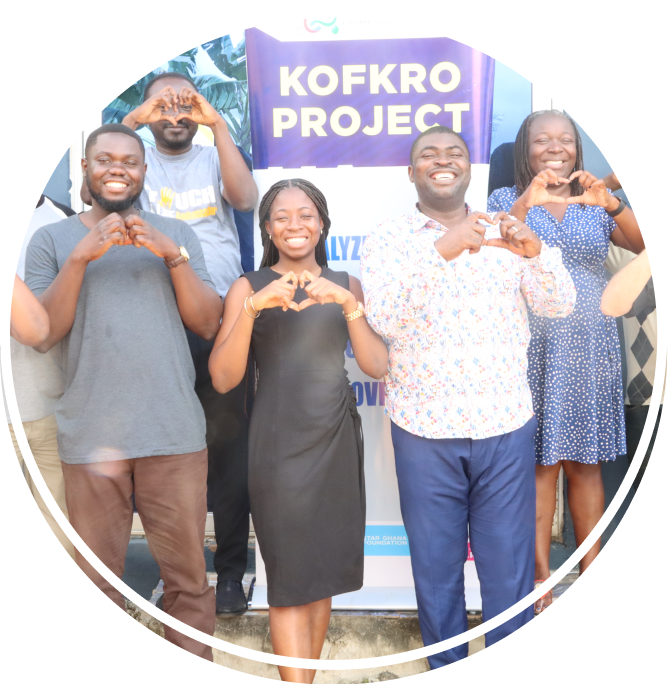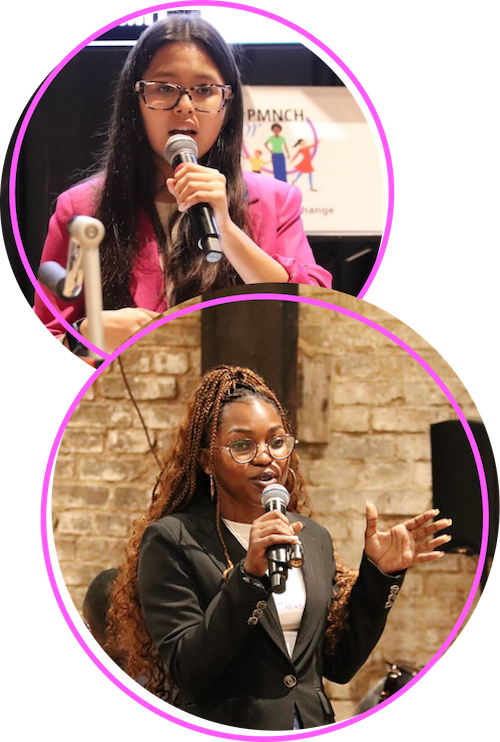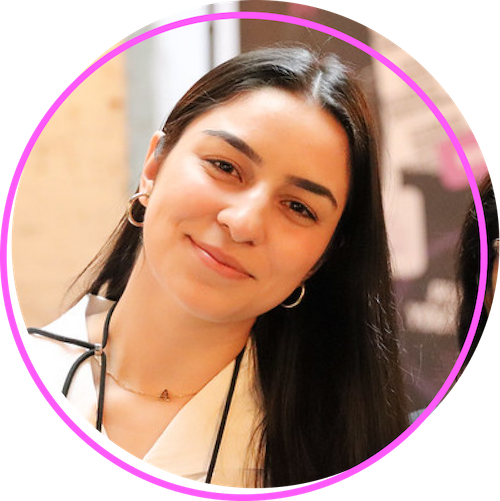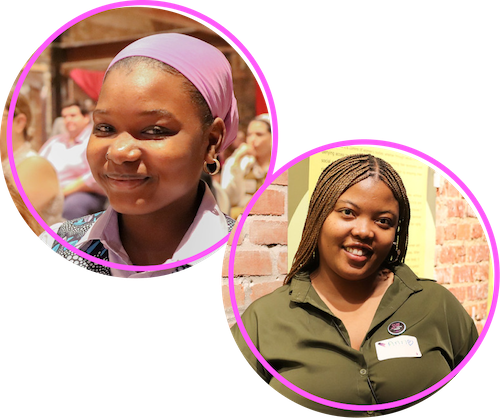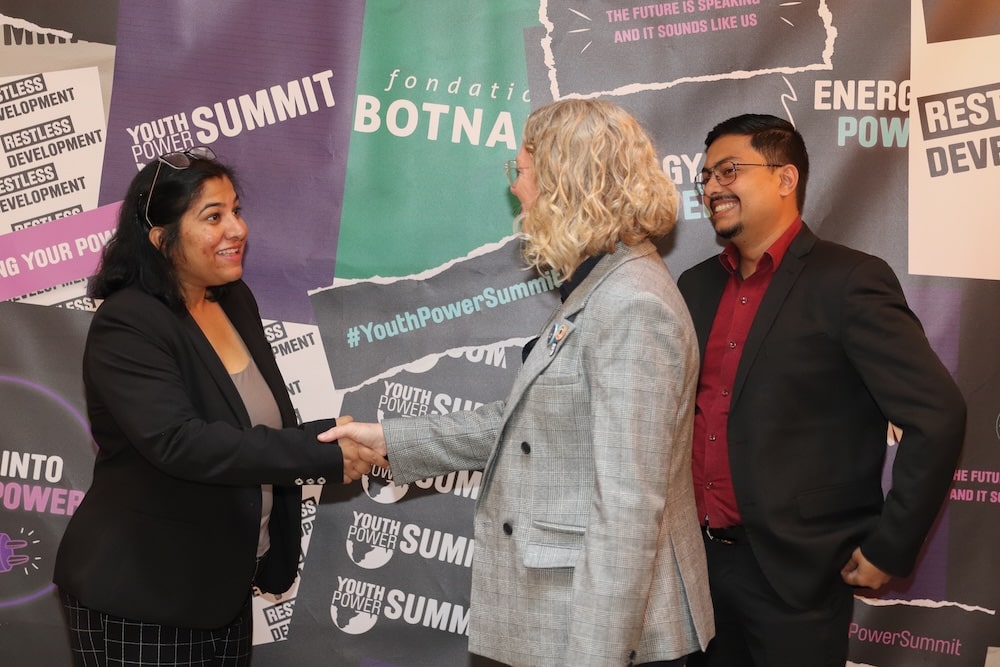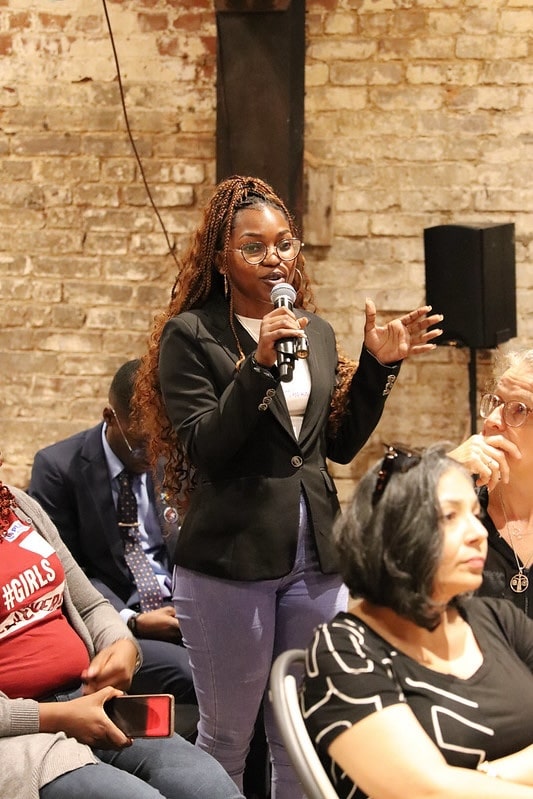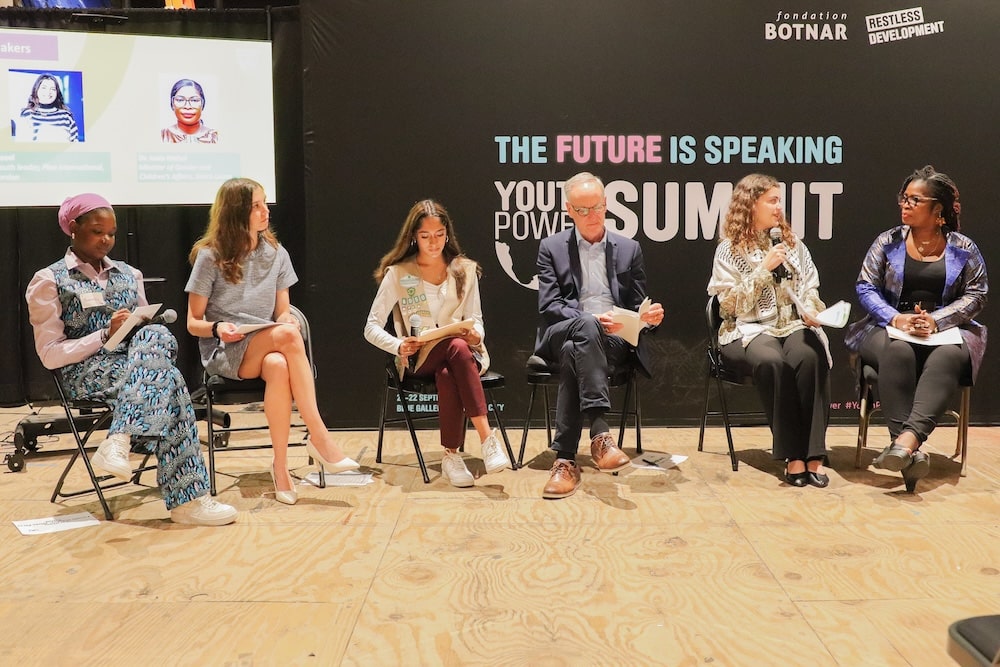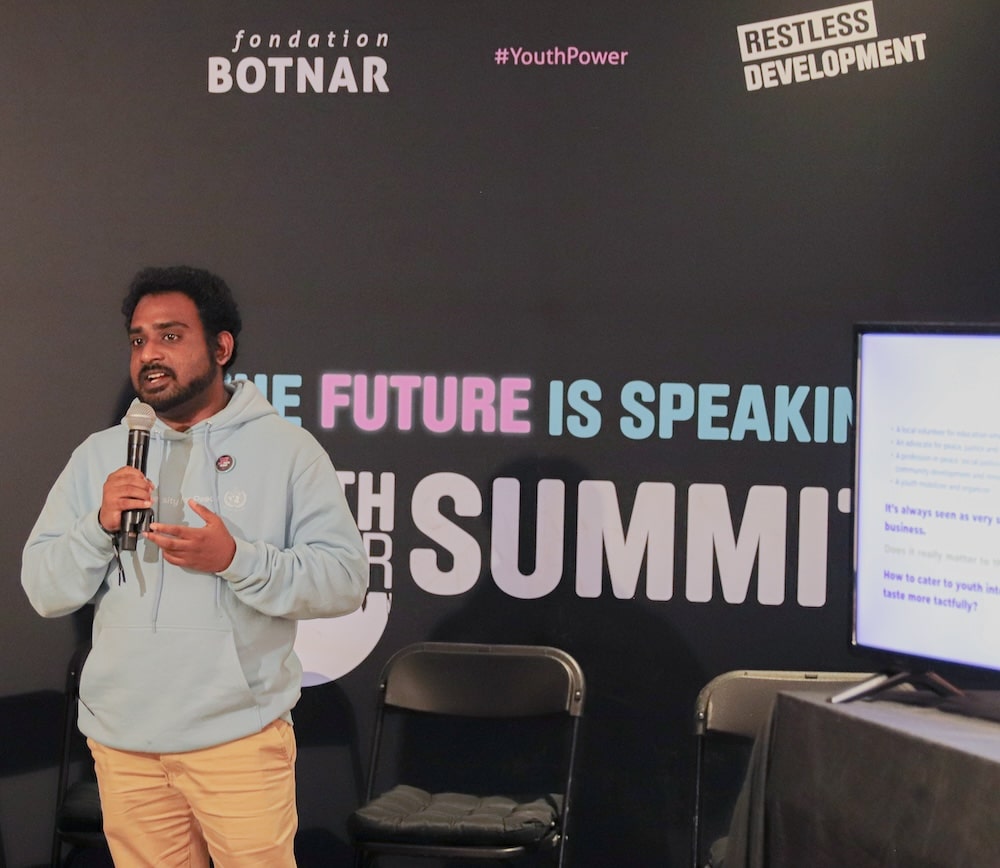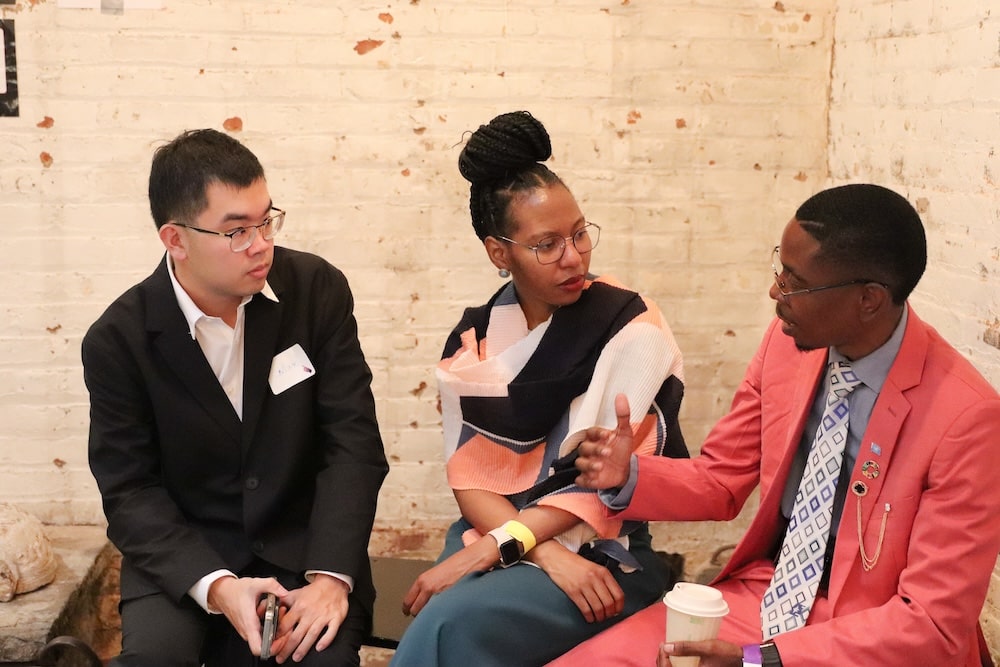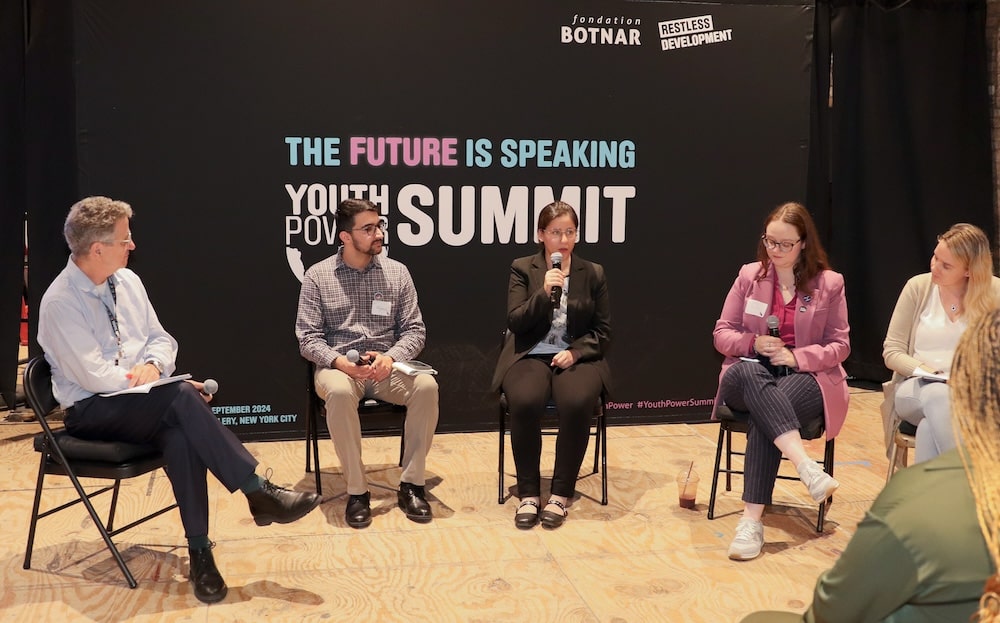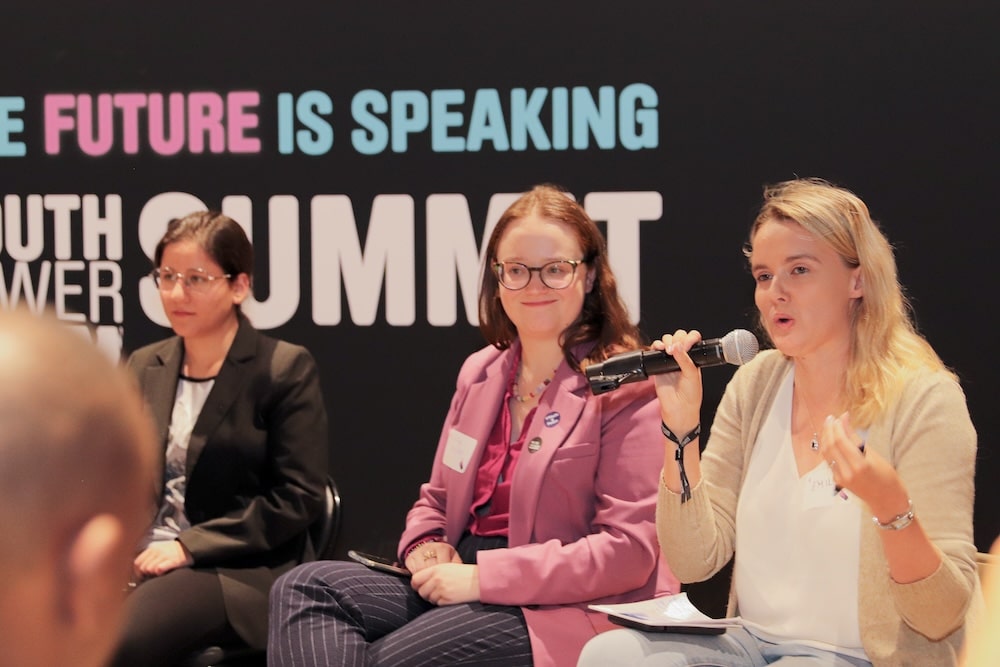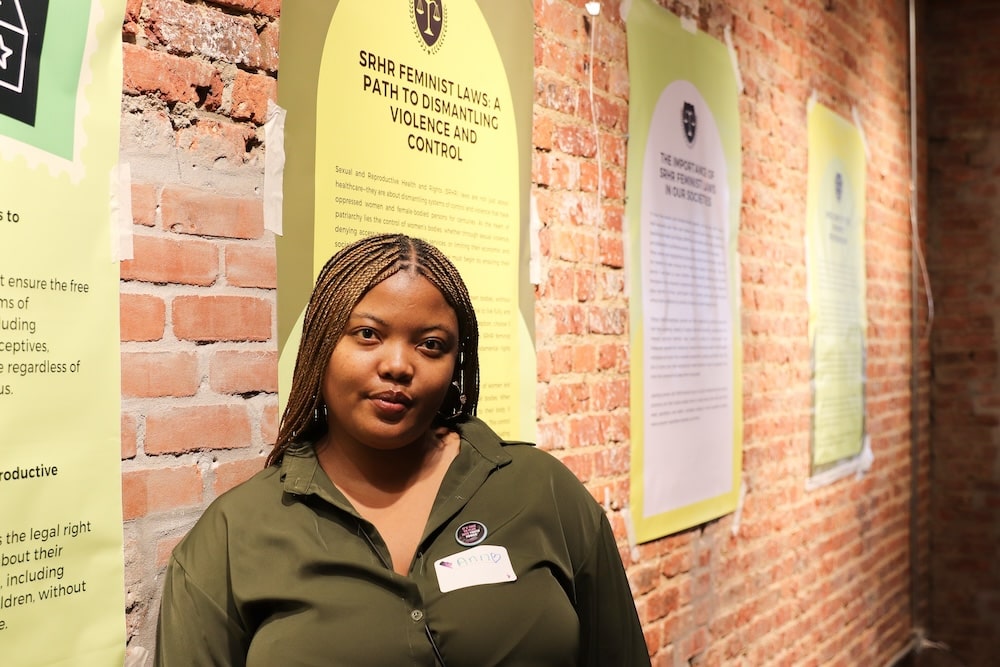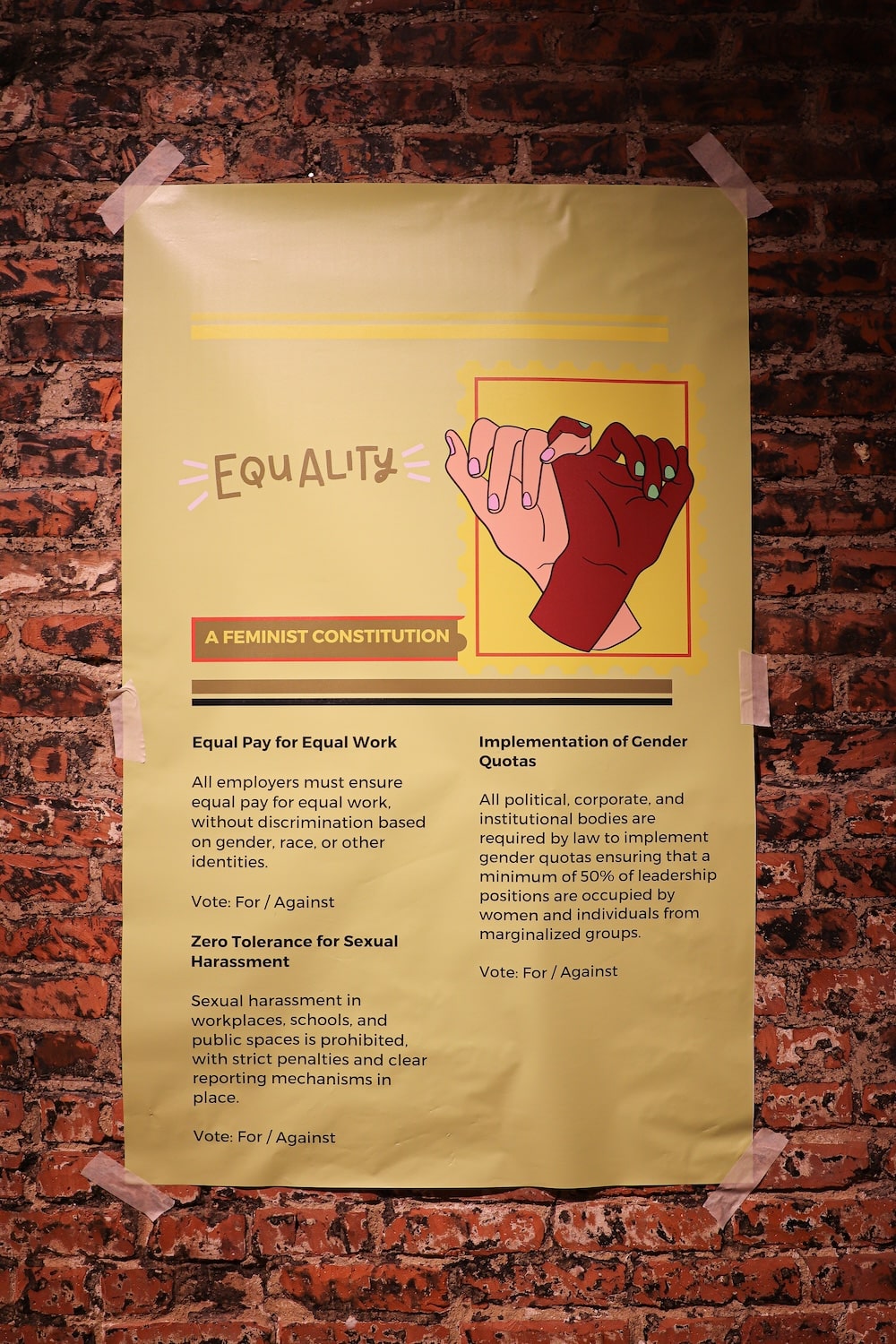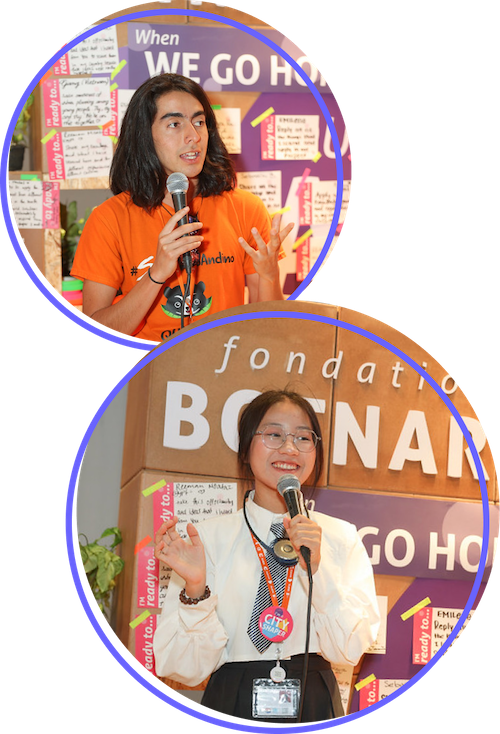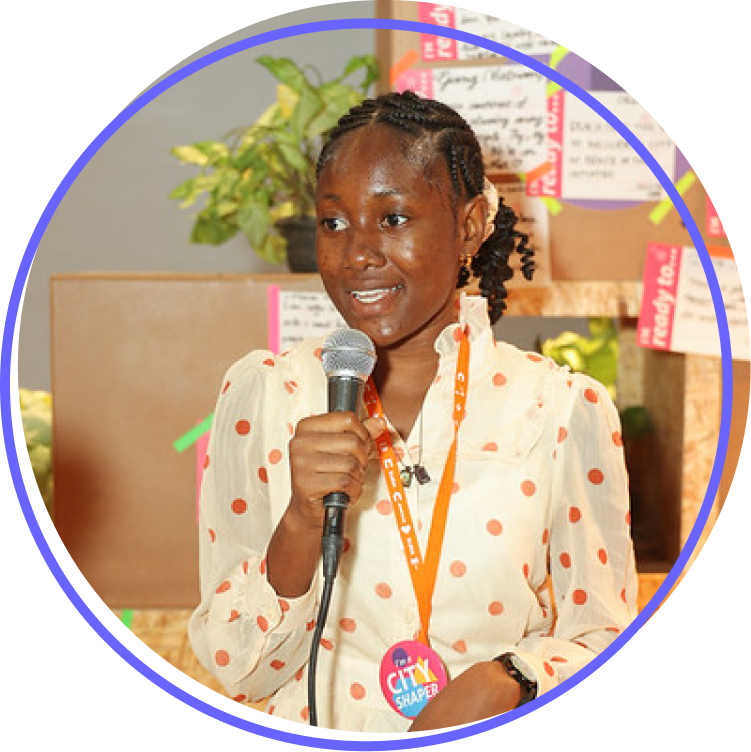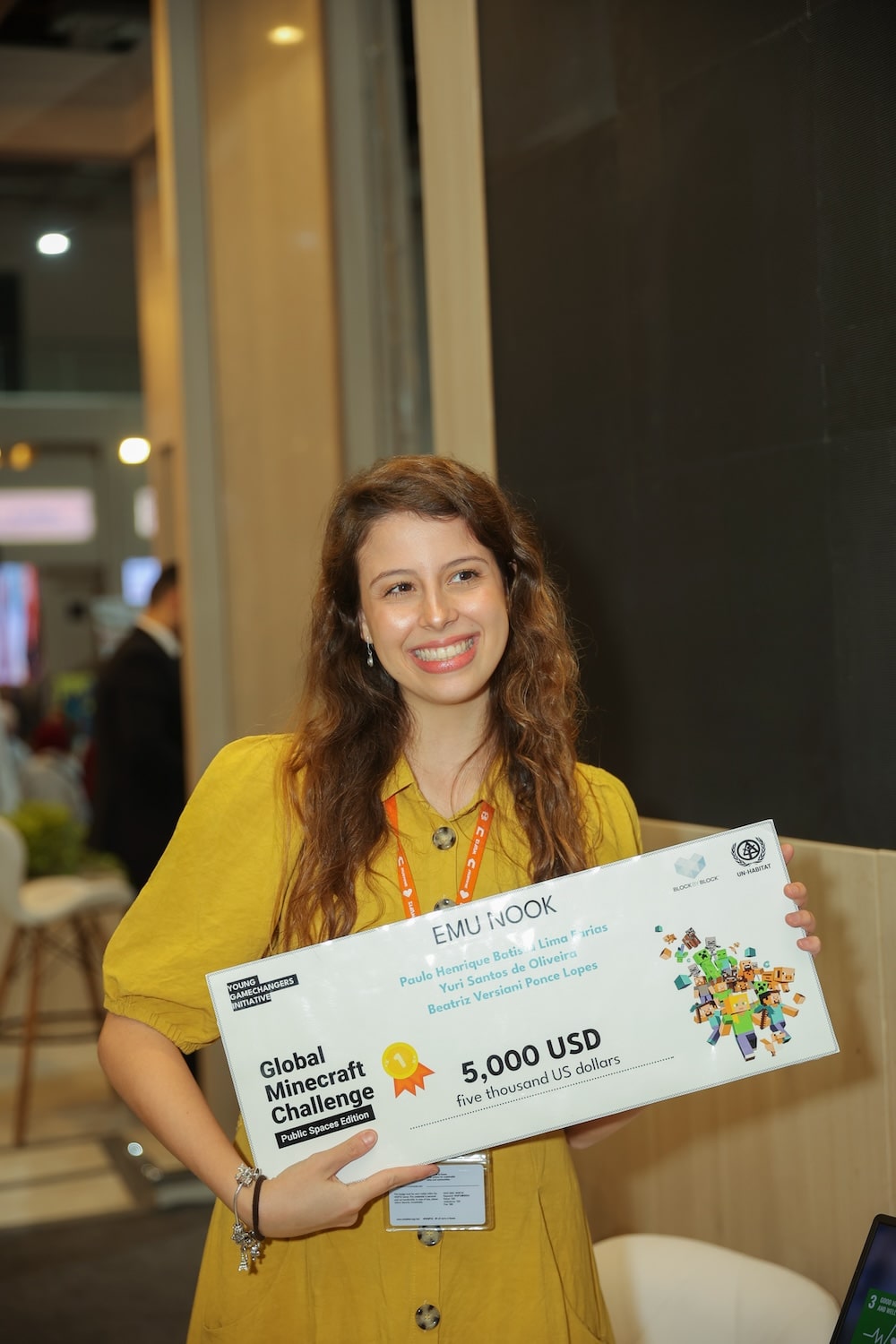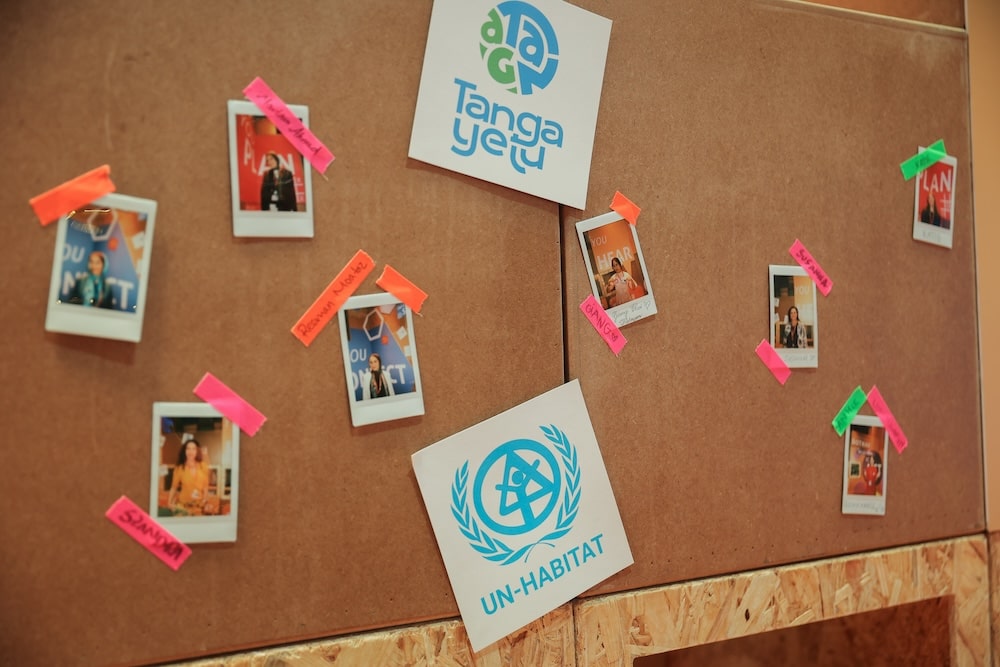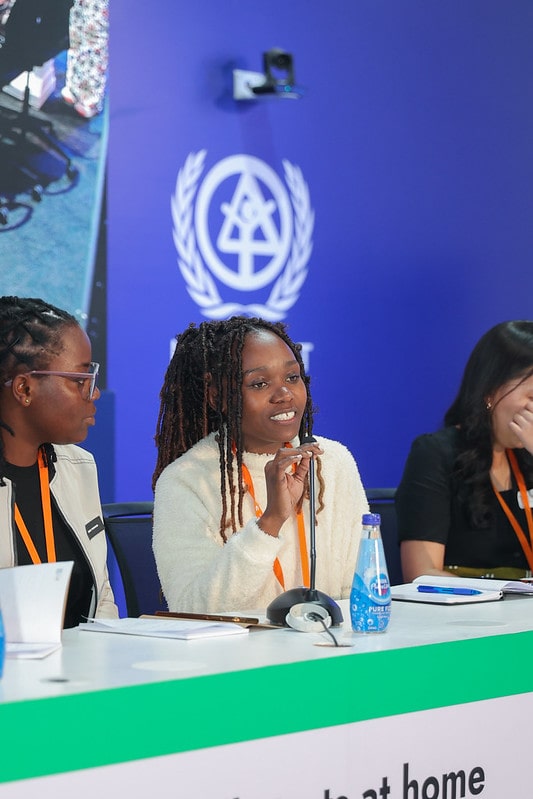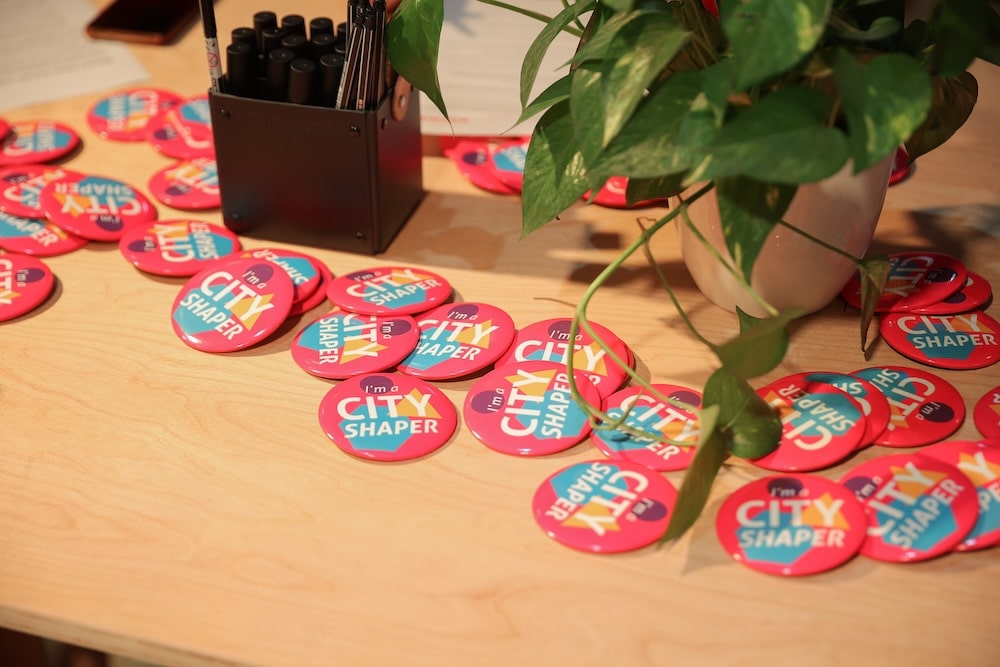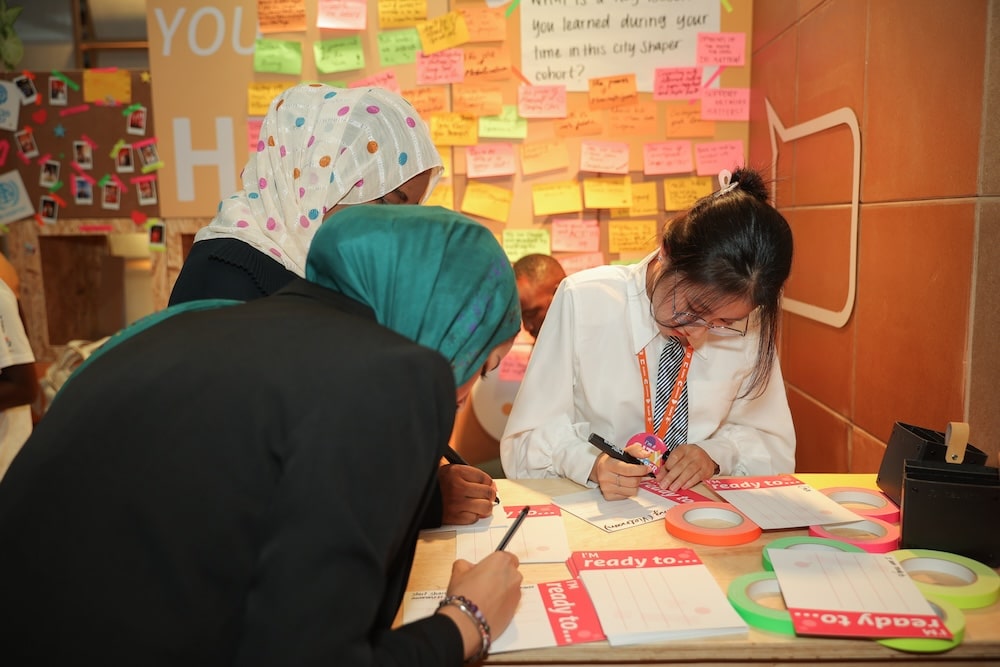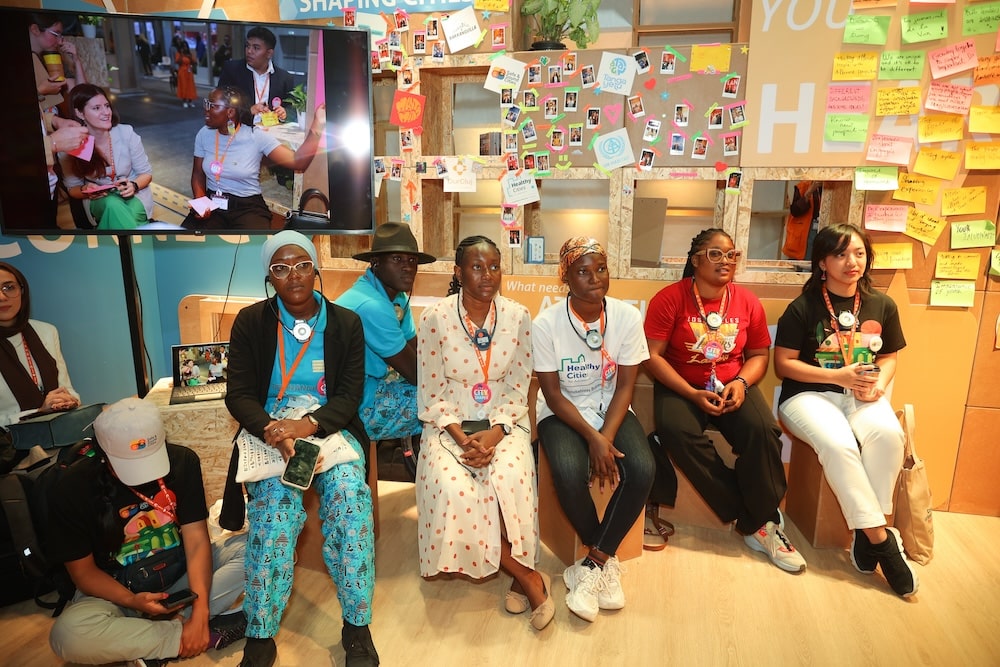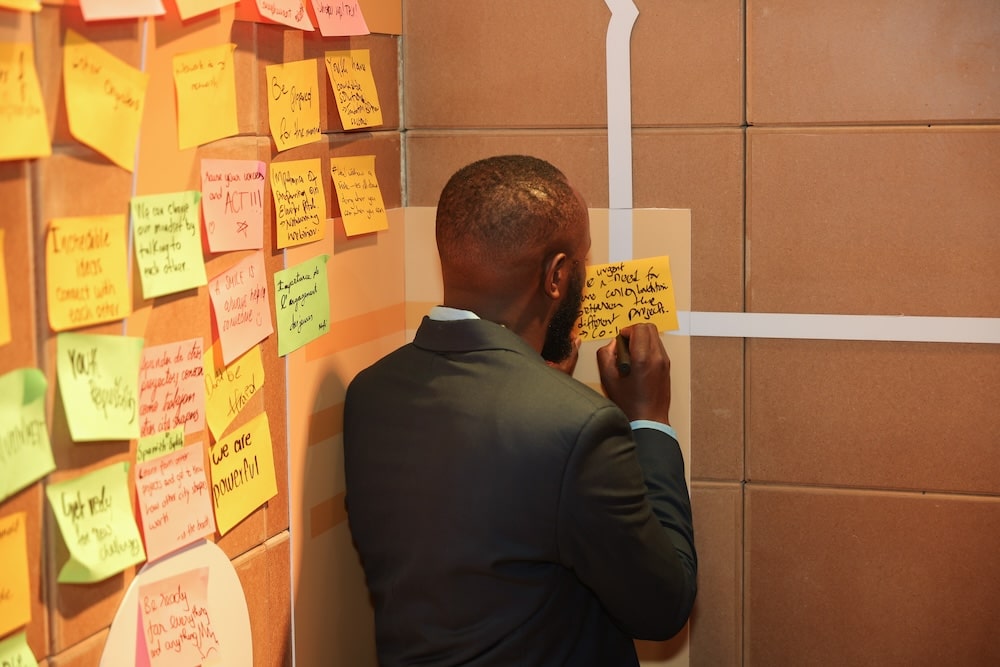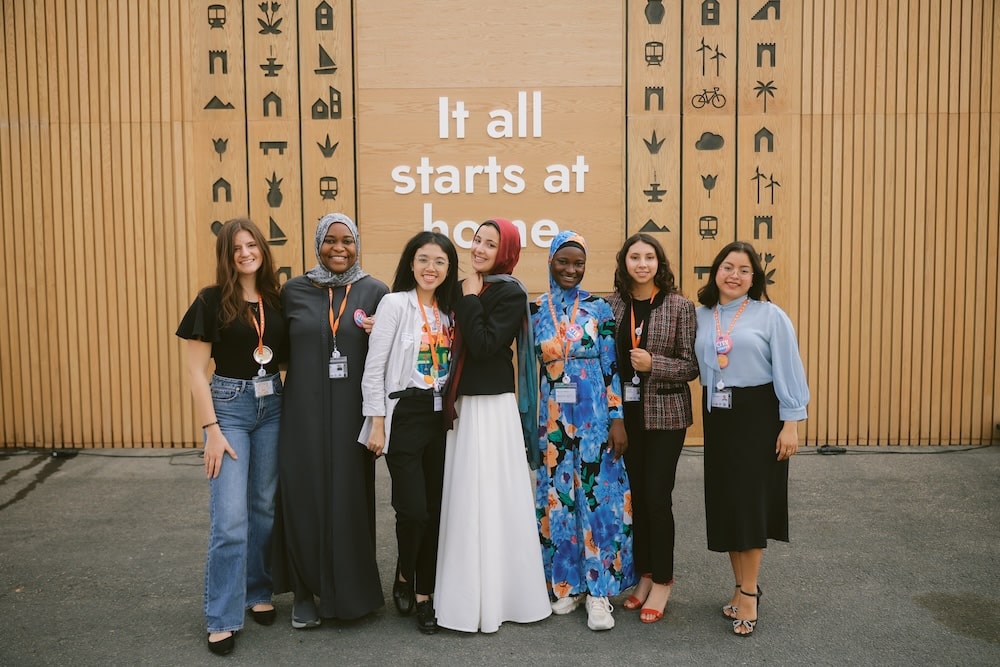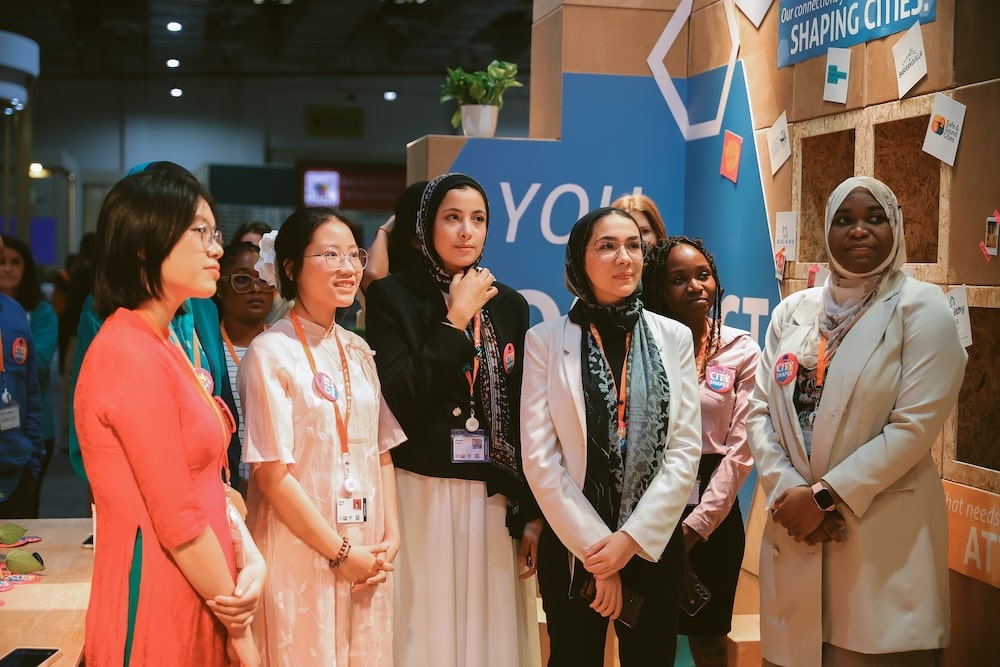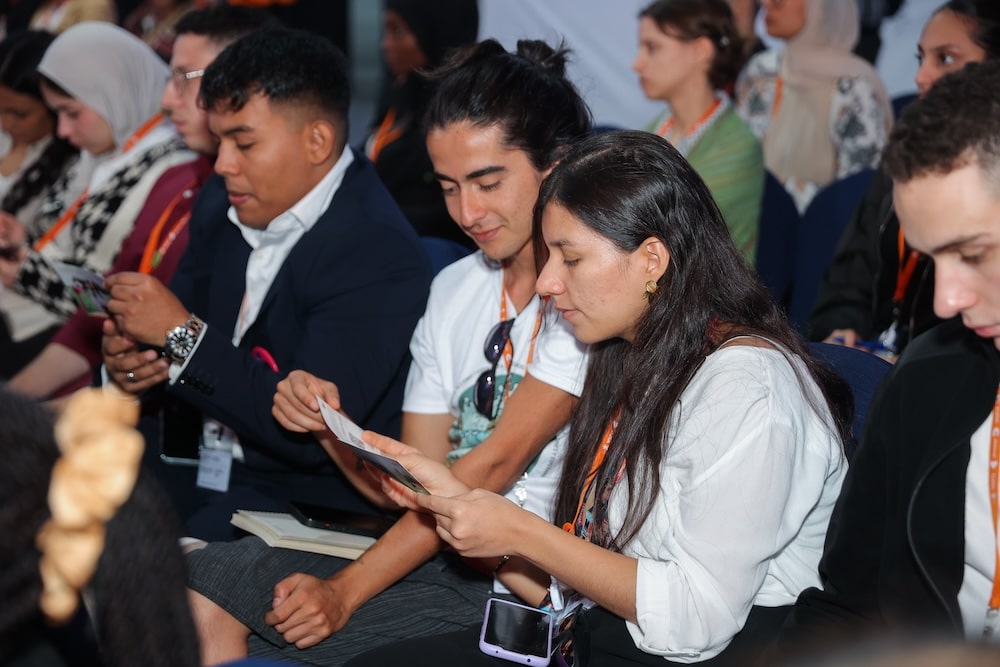Our Year
2020 in review
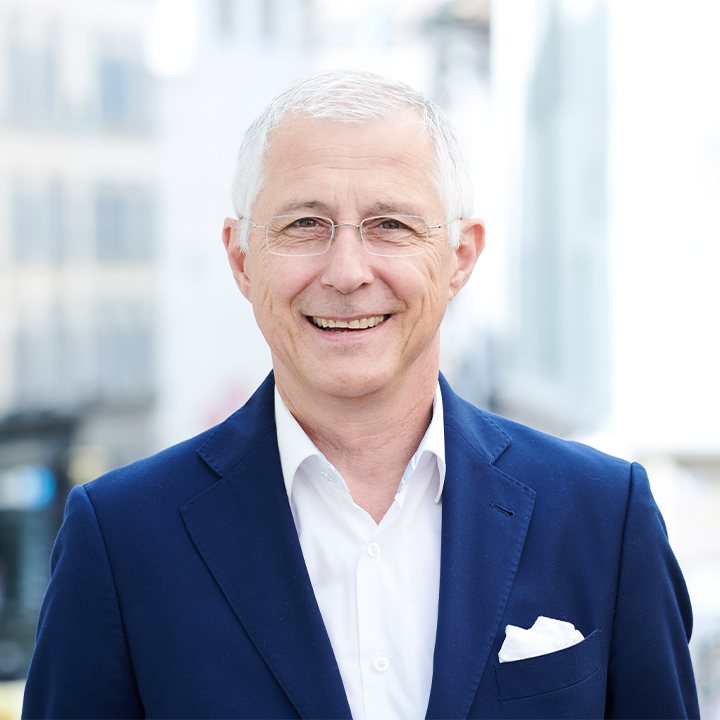
Message from our Board Chair
As we evolve, so too do our governance and our strategy.
2020 was a year of tumult and transformation for countries throughout the world. COVID-19 flooded health systems, closed schools and businesses and brought uncertainty and upheaval to nearly every aspect of people’s lives.
Yet the pandemic has also underscored the importance of our mission at Fondation Botnar: to foster the wellbeing of young people in an increasingly complex, interconnected world. Thanks to the digitalisation of our operations and our partners’ unflagging commitment, in 2020 we continued without interruption to engage young people in the project of shaping their cities and their futures.
As we evolve, so too do our governance and our strategy. On the Board, we welcomed Flavia Bustreo, an international expert in children’s rights, health and wellbeing, as our first Vice Chair and are now supported by governance bodies in the areas of Audit/Risk, HR/Organisation, Investment and Philanthropy. The last of these oversees our grant strategy and reviews grant applications. In addition, a larger, generationally diverse group of experts, including many members of the former Expert Commission, will continue to provide high-level guidance on grant-making in our areas of focus.
With the alliances we are building and the lessons we are learning, we are confident that Fondation Botnar will keep contributing to a future world where all young people can realise their rights, lead lives of good health and dignity and participate as thriving, productive citizens.
Thomas Gutzwiller, Board Chair, Fondation Botnar
2020 at a glance
2020 started off big. Then the pandemic hit the world, but we never stopped. Watch our video about how we listened, adapted, and carried on in 2020.
Three questions to Stefan Germann, CEO
Q1
How has Fondation Botnar responded to COVID-19?
The pandemic has only sharpened the urgency of nurturing young people’s wellbeing and potential using digital tools and platforms.
In response, we committed CHF 20 million to support international research to understand better and respond faster to COVID-19. Three-quarters of that sum went to Botnar Research Centre for Child Health’s 11 research consortia in the areas of diagnostics, immunology, and interventions. The rest will fund the development of new privacy-preserving technologies for disease prevention and control, with a focus on implementation in low-resource settings, at the Swiss Federal Institute of Technology in Lausanne.
We also gave our partners flexibility to adapt their activities and timelines to unexpected new realities and extended the submission deadline for our flagship Fit for the future grant program.
Q2
What would you like people to know about the recent development of your strategy?
You won’t hear us talking about three-year strategies or five-year plans at Fondation Botnar. We see strategy as a fluid, iterative process of adaptation and discovery.
With strong engagement from social scientists, we went through a strategic re-evaluation in 2020 that moved us toward a more relational definition of wellbeing. Now more than ever, we aim to understand how young people see the world in terms as close to their own as possible.
Both in our refined strategy and in our program design and delivery, we’re focussing on young people’s relationships with other people, their natural environment and the wider culture, politics and economy. Practically, this means finding more ways for young people to give us their vital input throughout the cycle of projects we fund and to grow their own capacities.
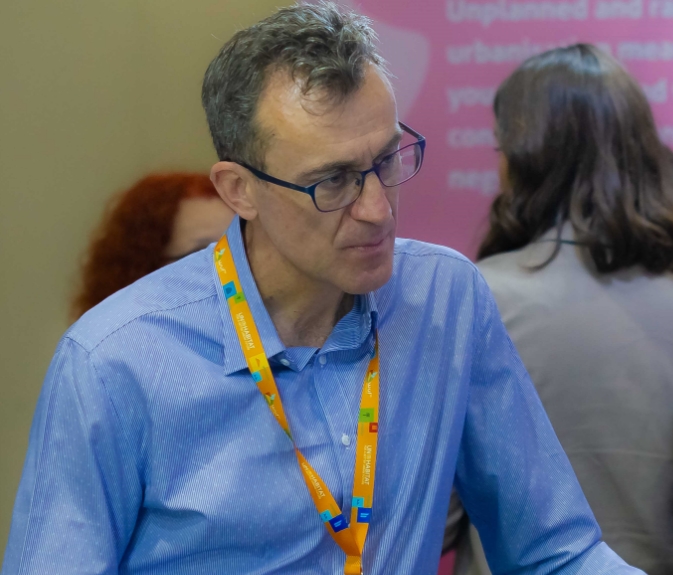
Stefan Germann, CEO at Fondation Botnar
We see strategy as a fluid, iterative process of adaptation and discovery.
Stefan Germann, CEO at Fondation Botnar
Q3
How has Fondation Botnar evolved as an organisation in 2020?
Just as we see our strategy as continuously unfolding, we see Fondation Botnar as an organism that’s always growing. Our team motto could be “Let go, let be and let in”. We accept that things won’t go perfectly, we welcome critical feedback and we’re flexible in how we think and work.
In 2020 we made progress toward a goal that’s been at the heart of my vision for our organisation since I became CEO: becoming a more agile and efficient and less centralised team. In addition to digitalising our operations, we now structure our work around ‘Teal’ organisational principles such as self-management and empowerment aligned to a clear sense of purpose instead of to a hierarchy.
Always looking for innovative new ways to fulfil our mission, we’ve teamed up with cinfo to establish a Young Professionals Program that brings young people on our staff for two-year stints. The benefits go both ways: while they gain experience, as up-and-coming changemakers, they enrich our perspectives, ideas, and expertise.
2020 highlights
CITIES FIT
for young people
OurCity envisions young people–centred cities
In Tanga we have many highly talented young people, but few have access to the employment opportunities needed to secure not only their own future but the future of society at large. We want to find ways to use technologies to enable these promising young minds to fully develop their skills and potential.
Daudi Mayeji, Tanga City Council Director
OurCity aims to advance young people’s wellbeing and opportunities by implementing coordinated programs that engage young people, civil society, policymakers, innovators, and other city champions to strengthen existing city systems and to drive change where it’s needed most. We found our first OurCity partners in Tanga, Tanzania and Cluj-Napoca, Romania – fast-growing cities with a desire for thriving, inclusive futures and with the right mix of engaged local stakeholders.
In 2020 the key development for OurTanga was the building of a collaborative city platform together with the City of Tanga to ensures local ownership of the effort. With their support, those working on OurTanga made partnerships with ProjektInspire to set up Tanga’s first science centre, Robotec Labs to offer fabrication training and other support to young innovators and Tanzania Data Lab, where young people and other city stakeholders will use technologies such as drones to collect data that can inform city planning and development for young people’s wellbeing.
The highlight for OurCluj was the LEAP study, a cross-sector, interdisciplinary assessment of young people’s needs and opportunities that will serve as a baseline for future interventions. In 2021, we will set-up a new fund co-funded by the City of Cluj and the business sector to support a pipeline of social enterprises led by youth aged 16 – 24 and co-create new programs with our local partners.
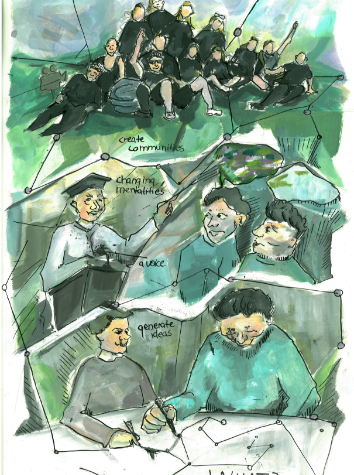
Artwork by Baliant
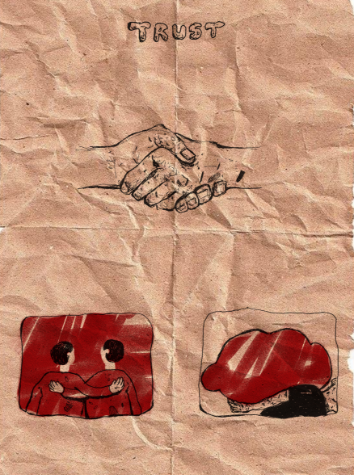
Artwork by Melinda
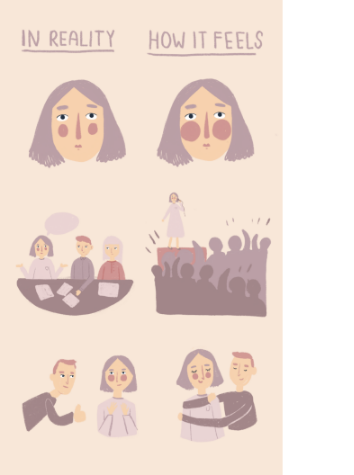
Artwork by Zsofi
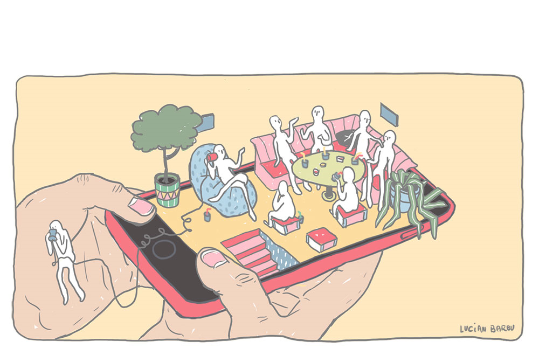
Artwork by Lucian
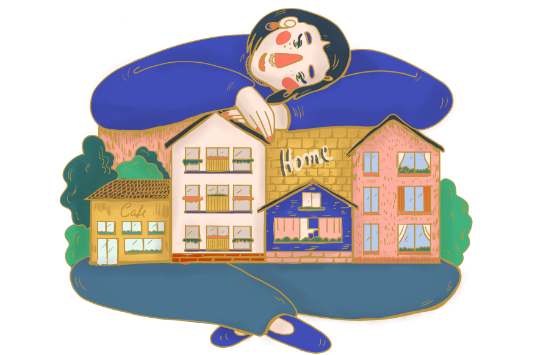
Artwork by Evelina
Artwork from ArtViStory, an art students collective taking part in documenting and co-creating OurCluj.
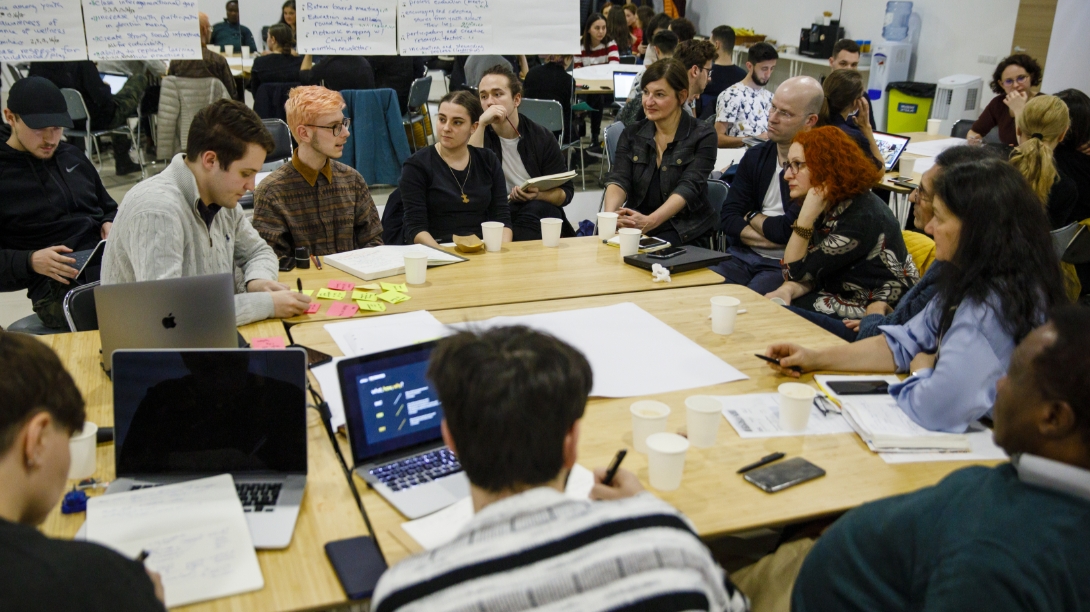
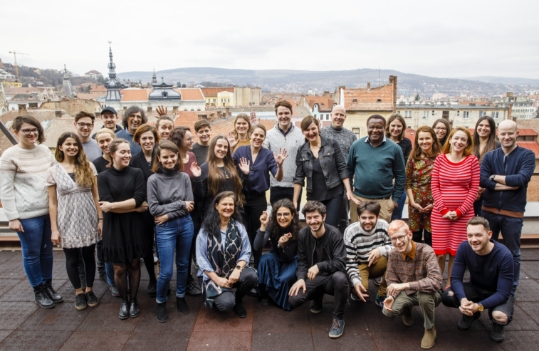
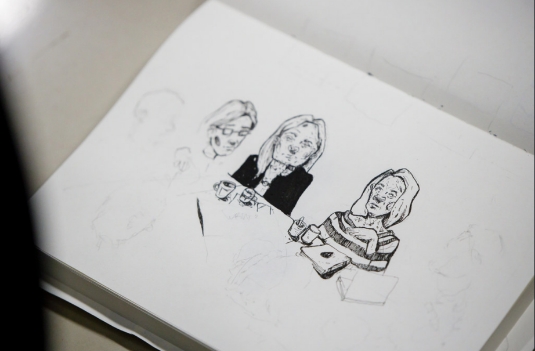
Early in 2020, the OurCity initiative partners met in Romania to discuss and share their visions.
Healthy Cities for Adolescents expands reach
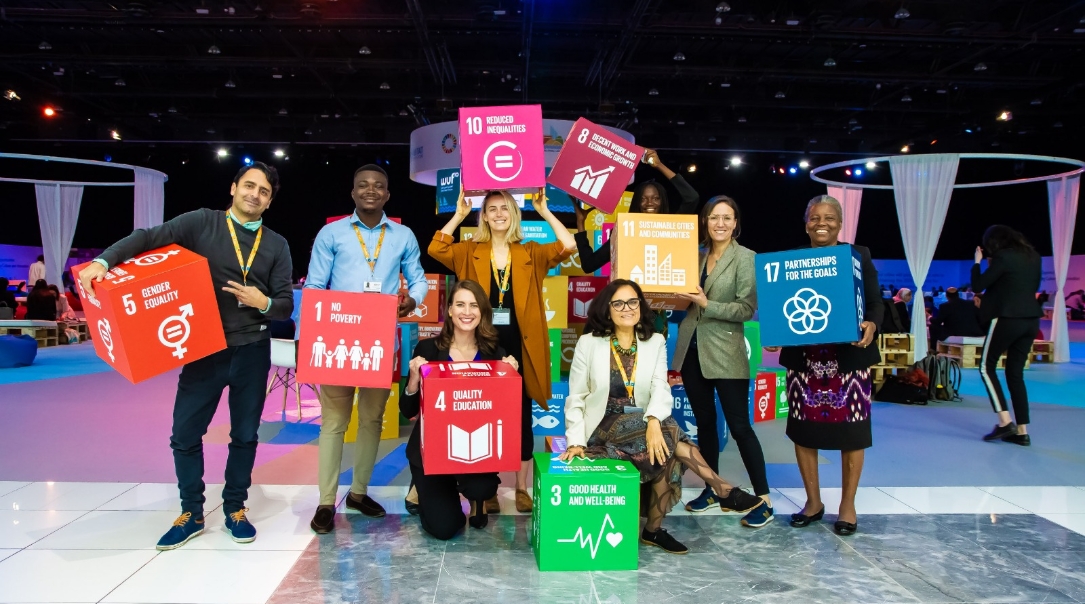
The Healthy Cities for Adolescents team and partners at the World Urban Forum in 2020.
Our Healthy Cities for Adolescents (HCA) program seeks to empower young people to be change agents who promote healthy cities for all. By facilitating partnerships with local government, civil society and businesses, the approach actively engages adolescents in design and decision-making.
The HCA projects launched in 2019 in the cities of Thiès, Senegal; Tamale, Ghana; and Medellín and Cali, Colombia address physical wellbeing, including nutrition, exercise, and sexual and reproductive health, as well as social and mental wellbeing. Applying digital technologies and featuring the formation of youth groups, in 2020 the projects invested in strategies to foster social cohesion, transform built environments, and influence city planning for healthy outcomes. Activities include youth leadership and mentoring, social and emotional skill workshops and sports and recreation.
In 2020, new HCA projects were initiated in Vietnam and India. Managed by UNICEF, the initiative in the city of Da Nang, Vietnam, is a strategic partnership of diverse actors who support the city government’s plan to implement the HCA approach. In India, a landscape analysis and city assessment led to the selection of Jaipur and Bhubaneswar and the identification of potential collaborations to address critical gaps in young people’s health and wellbeing. The resulting projects will begin in 2021.
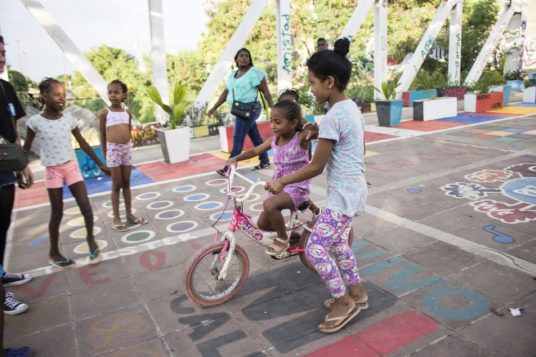
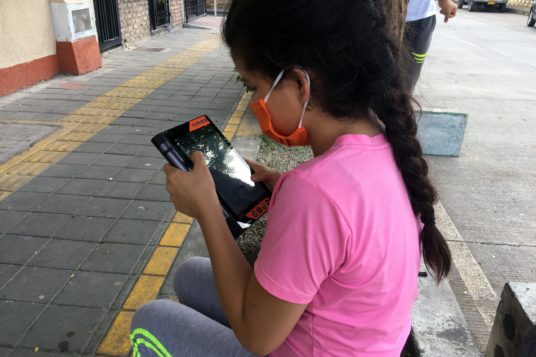
Vivo Mi Calle promotes active mobility in Cali and is led by Fundacion Despacio.
New partnerships at 10th World Urban Forum
Before COVID-19 made long-haul travel untenable, Fondation Botnar attended the 10th World Urban Forum in Abu Dhabi with the aim of catalysing discussions around how we can create inclusive, safe, liveable, and healthy cities for and with young people. Today 55% of the world’s people reside in urban areas. That share is set to rise to 70% by 2050, which will create new problems while worsening old ones.
At the same time, growing urbanisation presents opportunities to promote young people’s wellbeing as digital technologies and AI become more developed and widely available. At the World Urban Forum, we signed a letter of intent with UN-Habitat to explore these opportunities through initiatives such as the Future Cities Challenge. Such engagement is a part of our long-term strategy to build more locally anchored approaches in collaboration with young people themselves.
AI & DIGITAL
for the next generation
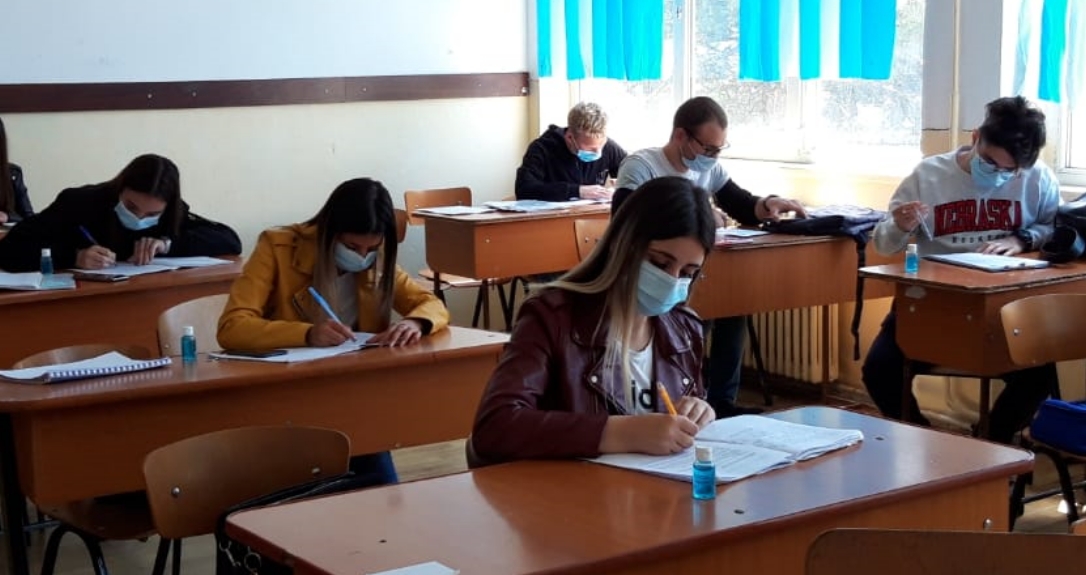
Pupils attending preparatory classes in June 2020 ahead of exams. UNICEF Romania distributed masks and disinfectant, as well as information materials for COVID-19 protection.
Against the backdrop of COVID-19, the benefits of digitally-enabled services as a complement to hands-on health and social care stand out more clearly than ever. In an ongoing project with UNICEF in Bacău, Romania, we supported testing and implementation of a minimum package of services (MPS) model in 45 communities using the digital platform Aurora. Designed for use by social and community health workers, Aurora is a real-time monitoring and evaluation tool that assists in selecting an appropriate MPS for each child and family.
In the pilot, local authorities, including social workers, community nurses and school counsellors, deployed 500 000 services on the basis of Aurora-enabled recommendations. These services were mostly preventive, for example, vaccinations, prenatal care and support for children at risk of dropping out of school. The program also improved access to these services for vulnerable groups, who might not be familiar with their rights. UNICEF Romania deemed the pilot successful both in spotting children whose needs had previously been overlooked and in addressing their vulnerabilities. UNICEF’s country office has mobilised forces in the Romanian parliament to promote a legislative change that would introduce the MPS model at the national level in a total of 2 000 communities.
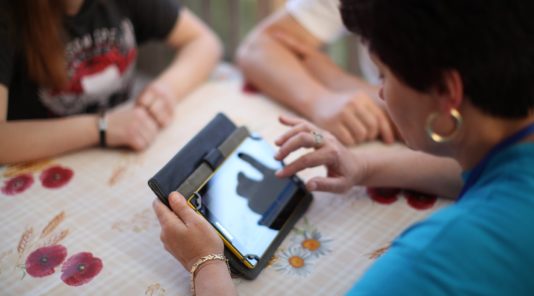
Social inclusion in Romania
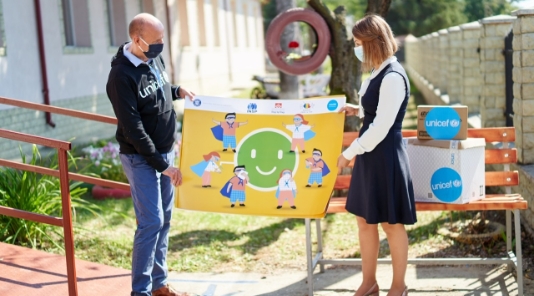
UNICEF Romania Representative Pieter Bult delivers protective equipment and prevention posters to a school in Eastern Romania.
New collaboration for the digital age
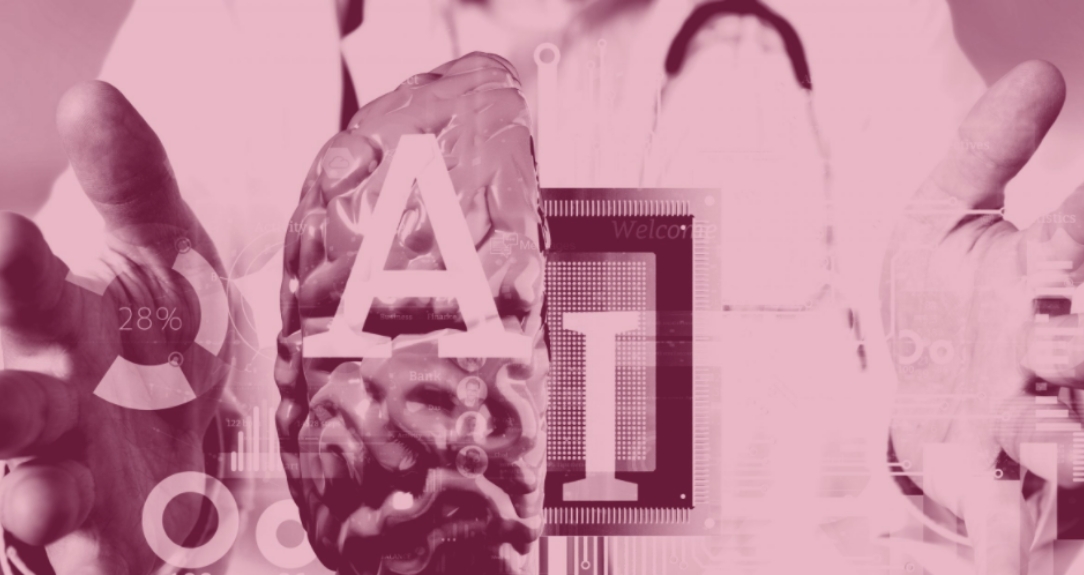
Global collaboration will be critical to the success of any effort to bring AI and digital to bear on public health. A big part of our role at I-DAIR is to bring together excellent people from emerging and established geographies of innovation who will ask questions that reveal new digital approaches to solving old problems in health.
Amandeep Gill, CEO of I-DAIR
With our support, the new International Digital Health & Artificial Intelligence Research Collaborative (I-DAIR), which calls itself “a distributed CERN for digital health”, entered its incubation phase in October in preparation for a full launch in 2022. As the experience of the COVID-19 pandemic highlights the potential of large datasets to help identify public health threats, I-DAIR’s aim of defining and developing global public goods and other enablers for research on and development of digital health solutions could not be timelier.
I-DAIR has forged partnerships with global organisations including the WHO and the London School of Hygiene & Tropical Medicine. Now it is rolling out demonstration projects in ten areas to develop digital health tools and enablers such as real-time epidemiology models and dashboards and a global research map. The projects’ hubs-and-spokes architecture will help bring emerging geographies of innovation into cutting-edge R&D, democratise AI and align health data collection with its use.
Health data and human rights
As our thinking about human rights in the context of digital technologies and AI continued to evolve, Fondation Botnar took part in several events and dialogues on issues such as data privacy and data sharing to help ensure that health data benefits the public good. In September, for example, we hosted a virtual session on digital rights at the UN’s AI for Good Global Summit, together with young experts, with a focus on safeguarding the wellbeing of future generations.
We took the opportunity of the first virtual World Health Summit, held in October, to put a spotlight on health data governance, hosting a session on the topic with a diverse panel of renowned experts. We were also excited to see our partnership with Transform Health further evolve. This coalition aims to build a global movement that brings together organisations and institutions across different sectors that are committed to achieving universal health coverage within the next ten years by expanding the responsible use of digital technology in healthcare.
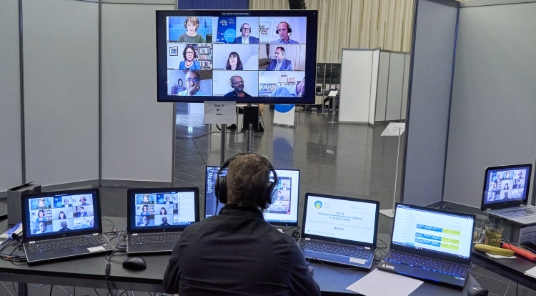
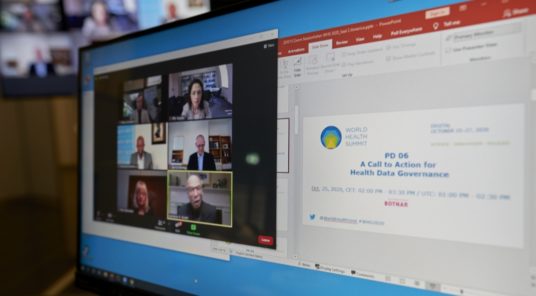
MEANINGFUL
youth participation
Global youth council kicks off
People aged 10 – 24 make up one-quarter of the world’s population. Yet too many of them, especially young women and girls, face structural barriers to accessing health services and information – which are prerequisites for realising universal health coverage (UHC). Together with several of our partners in Transform Health, we established the Young Experts: Tech 4 Health council to provide independent insight and advice on how to leverage digital innovation to address these barriers, for example, by financing health products, training health workers, destigmatising sexual and reproductive health issues and ensuring quality and accessibility of care. Launched in January 2020 and currently hosted by Plan International Canada, the global council is the cornerstone of a ten-year effort to strengthen advocacy, communication and accountability for artificial intelligence, digital and frontier technologies as catalysts for the 2030 UHC agenda.
Young minds tackle youth unemployment
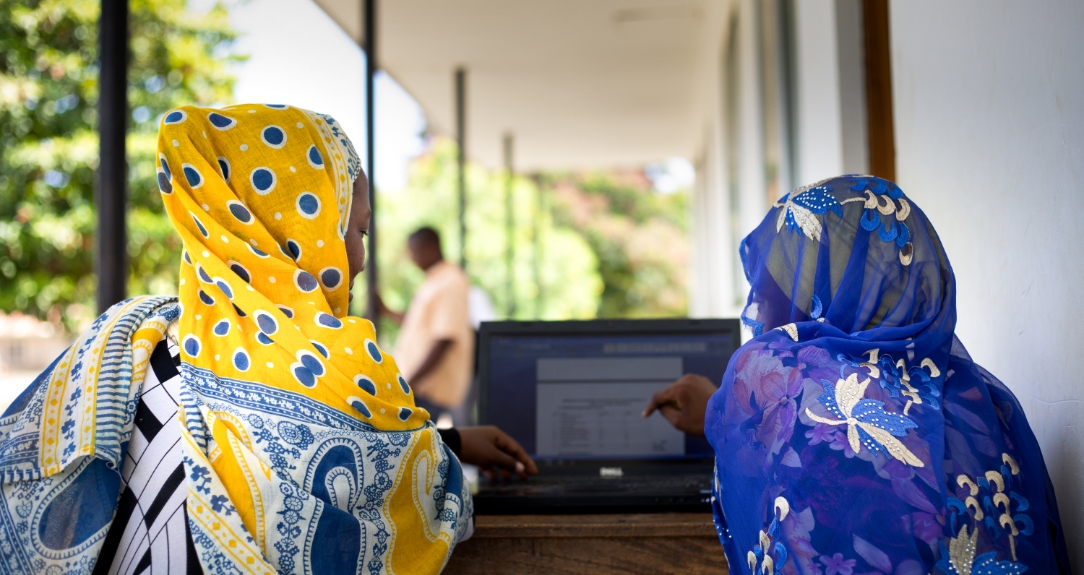
While Africa’s youth under 25 – 60% of the continent’s population and rising – harbour huge potential, they are largely excluded from political, social, and economic opportunities, especially employment. Together with UNICEF, we have established the African Youth Digital Innovation Platform, which aims to catalyse young people’s ideas on how to create economically viable business models and employment opportunities across Africa.
The platform’s key project, the Youth Agency Marketplace (Yoma), engages young people online and offline to build their digital and other skills. Enrollees are encouraged to complete tasks for social impact or to enrol in learning and growth opportunities that enhance their learning-to-earning journey. As they do, they earn digital tokens that can be redeemed in a physical market (for instance, to buy basic commodities) or in a digital market (for instance, to buy airtime or coaching) They are also urged to document their experiences in a “credential wallet” akin to a digital CV.
Youth creativity for future cities
Urban areas have suffered significantly as a result of COVID-19, underscoring the need both to rethink how our cities are created and to include young voices in urban planning. In a joint campaign with UN-Habitat to engage young people aged 10 –24 in this topic, we launched the #FutureCitiesChallenge in September 2020. It encompassed a gamified educational component in which children and young people identified what makes cities healthy as well as a competitive component that invited them to imagine a better future for their cities with respect to public spaces, transport, environment, technology, or education.
In the competition, more than 70 submissions from across the globe proposed creative ways to address key issues facing urban youth today, many related to sustainability. The winning ideas included proposals for constructing parkour circuits in abandoned spaces, using smartphones to improve data collection in favelas and designing pavements with a focus on children’s mobility. Each winner received credits for online education courses. In 2021 we plan to incorporate the #FutureCitiesChallenge into our other programmatic activities with UN-Habitat.
It is important that more young people in the world take initiatives that seek the transformation of their environment. They need to stop fearing the city and start seeing it as theirs.
Michel Tatiana Zuluaga (24) and Valentina Restrepo (25), Winners of 2020 Future Cities Challenge from Cali, Colombia
Things we learnt in 2020
Young people are not only resilient but innovative and creative
Young people’s first-hand experience and input are even more than a crucial source of intelligence for any effort to create a healthy future where they can thrive. They are a wellspring of ideas and action that we are just beginning to tap.
To spur exploration of new ways of coping with challenges presented by COVID-19, which in Africa has hit people under 35 particularly hard, the African Youth Digital Innovation Platform’s skill-building marketplace Yoma invited young people to submit ideas for protecting themselves and their communities from the virus. More than 80 000 contenders aged 14 to 35 took part in this COVID-19 Design Innovation Challenge, submitting around 8 000 prototypes of solutions of which the best are now being incubated.

Our partners are determined, resourceful and just plain amazing
For our partners, the initial shock of COVID-19 quickly gave way to agile action. One of the several grants we awarded to cover COVID “contingencies” went to support our partner D-tree International’s initiative to support Zanzibar’s national response to the virus. Together with the Conrad N. Hilton Foundation, we are supporting a strong community-based COVID-19 response in Zanzibar by integrating response activities into the established, digitally enabled community health program, swiftly reacting to the critical need for rapid data transmission and remote health worker training and communication.

The future of collaboration is digital – for us and for our partners
If 2020 taught us anything, it is that digital technologies will be increasingly central to learning and collaboration in the 21st century. COVID-19-related restrictions on travel and face-to-face contact accelerated our integration of digital tools and platforms into the way we work with one another and our partners.
Our partners have found ingenious ways to adapt their programs for young people as well as their own operations to a suddenly more virtual world. The pandemic has also got us thinking about building relationships with local consultancies who could be our eyes and ears on the ground and carry our activities forward when we cannot do so ourselves. In this sense, the COVID-19 crisis has helped us all become more resilient, even as it has reminded us how important face-to-face interaction is to our relationships and activities.
Thank you to all our partners and supporters for the innovation and collaboration in 2020! Look forward to working together in 2021 to continue to improve the wellbeing of young people around the world.


